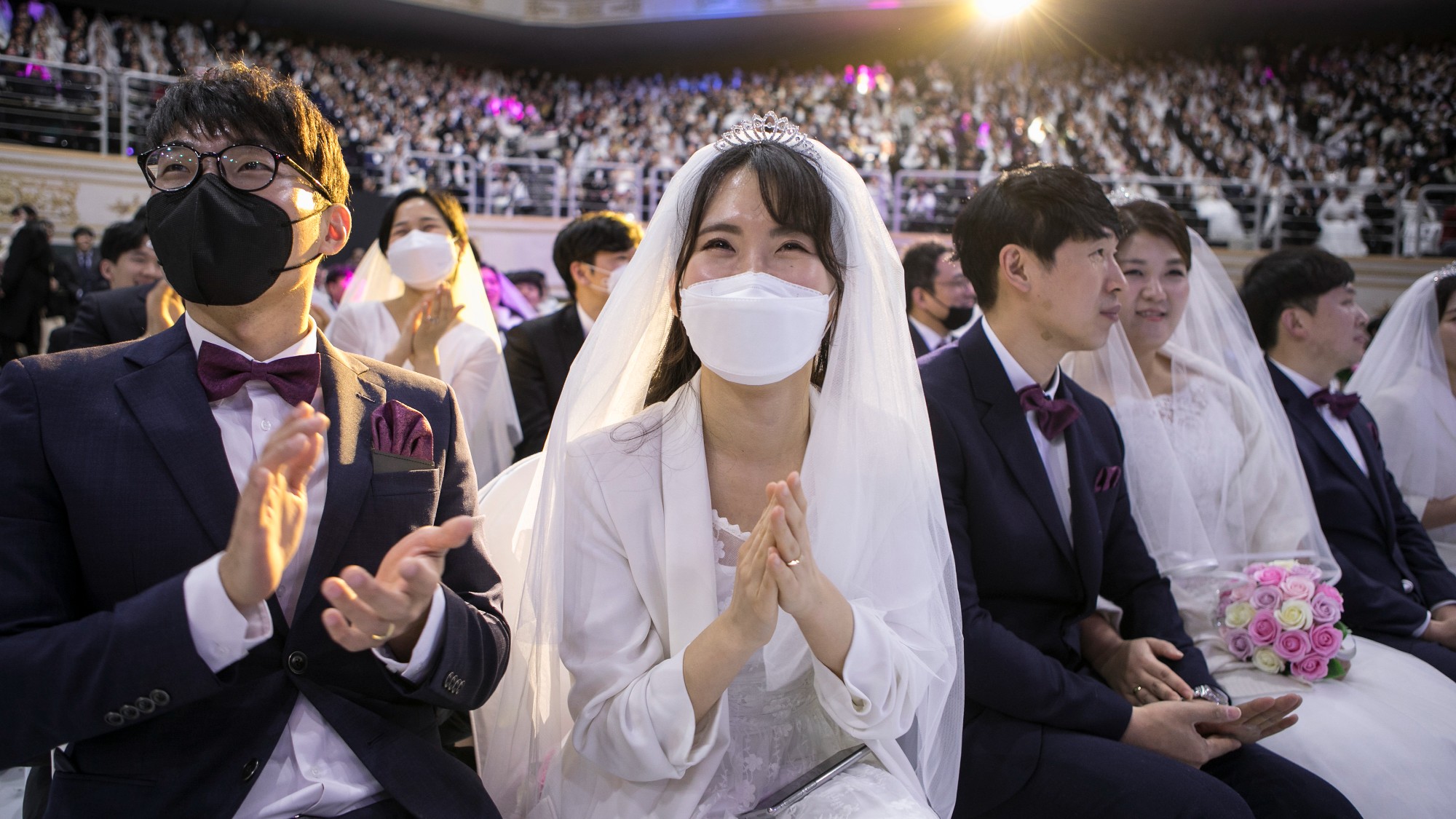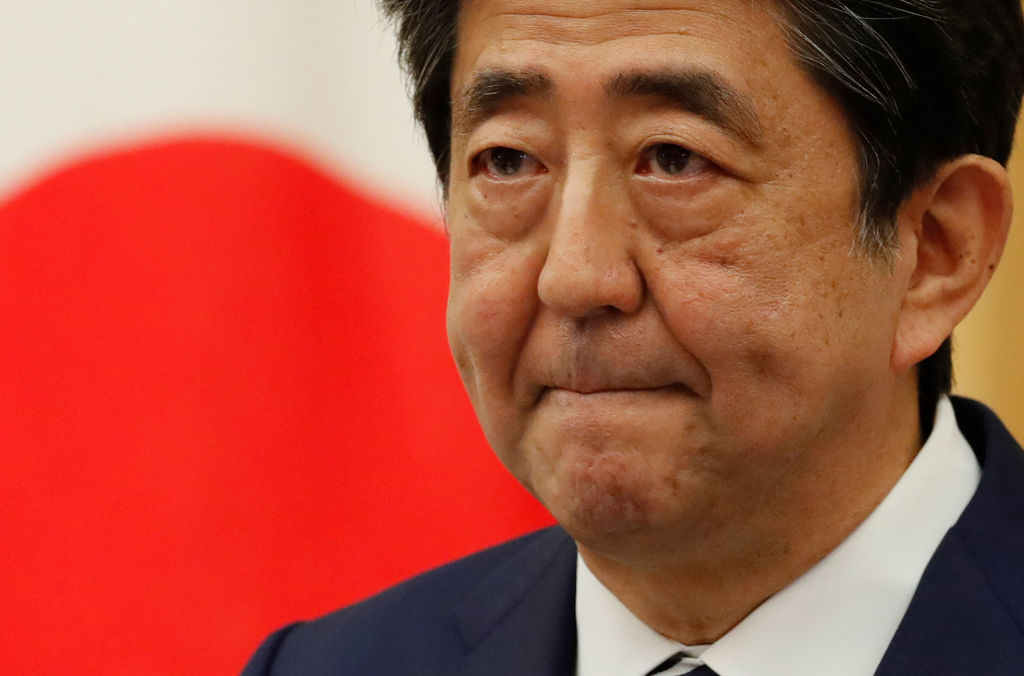Japan's bid to dissolve the Moonies church
Controversy has snowballed since the death of Shinzo Abe

A free daily email with the biggest news stories of the day – and the best features from TheWeek.com
You are now subscribed
Your newsletter sign-up was successful
Japan's government has asked a court to dissolve the country's branch of the Unification Church in the continuing fall-out from the assassination of former prime minister Shinzo Abe last year.
The fringe church, whose members are known as "Moonies" after its founder Sun Myung Moon, has divided opinion for decades. For some, the group is "unfairly maligned", said the Financial Times last July after Abe's death, but for others it is a "cult that has used its spiritual hold over followers to enrich the religion's founding family".
Abe's suspected killer, Tetsuya Yamagami, told police he was motivated by the former PM's alleged links to the church, which he said "bankrupted his mother", the BBC reported, casting an intense spotlight on the Moonies.
A government investigation has since concluded that the group pressured followers to make large donations, violating the country's 1951 Religious Corporations Act.
Under this law, a faith-based organisation can be dissolved if its actions are "clearly recognised as being substantially detrimental to public welfare", the BBC said. However, the government can only make sure it "will lose its tax benefits", and does not have the power to stop the Unification Church operating altogether.
If the Tokyo District Court finds for the government, it would mean Unification is the first church in Japan to "lose its legal status under a civil code violation", said Al Jazeera. The church has survived hundreds of civil lawsuits in the past and, although it has "acknowledged excessive donations", it "says the problem has been mitigated for more than a decade" and recently pledged further reforms.
The church says it was unfairly vilified over Abe's death, and that the government's move impinges on religious freedom for Japanese people and "hurts its image", added The Japan Times.
Involving "hearings and appeals from both sides", the case could "take months or possibly years", said the Tokyo-based newspaper.
Ultimately, the Moonies' power could be diminished significantly, Professor Yoshihide Sakurai, an expert on cult issues, told the BBC. It is likely the public will become wary of them, and it will be considered scandalous for politicians to interact with the church, he said.
Others fear it could have the opposite effect, pushing the church's activities "underground". There is a call, instead, for better public education, as religious studies is no longer taught in Japan's schools.
"We need religious education in schools," Toshiyuki Tachikake, a professor at Osaka University, told CNN. "Giving someone a broad understanding of different religions and their teachings allows them to make an informed decision on whether they want to join a certain group if a recruiter ever approached them," he said.
This article first appeared in The Week’s Global Digest newsletter. Sign up for a preview of the international news agenda, sent to your inbox every Monday.
A free daily email with the biggest news stories of the day – and the best features from TheWeek.com
The Week
Escape your echo chamber. Get the facts behind the news, plus analysis from multiple perspectives.

Sign up for The Week's Free Newsletters
From our morning news briefing to a weekly Good News Newsletter, get the best of The Week delivered directly to your inbox.
From our morning news briefing to a weekly Good News Newsletter, get the best of The Week delivered directly to your inbox.
Rebekah Evans joined The Week as newsletter editor in 2023 and has written on subjects ranging from Ukraine and Afghanistan to fast fashion and "brotox". She started her career at Reach plc, where she cut her teeth on news, before pivoting into personal finance at the height of the pandemic and cost-of-living crisis. Social affairs is another of her passions, and she has interviewed people from across the world and from all walks of life. Rebekah completed an NCTJ with the Press Association and has written for publications including The Guardian, The Week magazine, the Press Association and local newspapers.
-
 Political cartoons for February 16
Political cartoons for February 16Cartoons Monday’s political cartoons include President's Day, a valentine from the Epstein files, and more
-
 Regent Hong Kong: a tranquil haven with a prime waterfront spot
Regent Hong Kong: a tranquil haven with a prime waterfront spotThe Week Recommends The trendy hotel recently underwent an extensive two-year revamp
-
 The problem with diagnosing profound autism
The problem with diagnosing profound autismThe Explainer Experts are reconsidering the idea of autism as a spectrum, which could impact diagnoses and policy making for the condition
